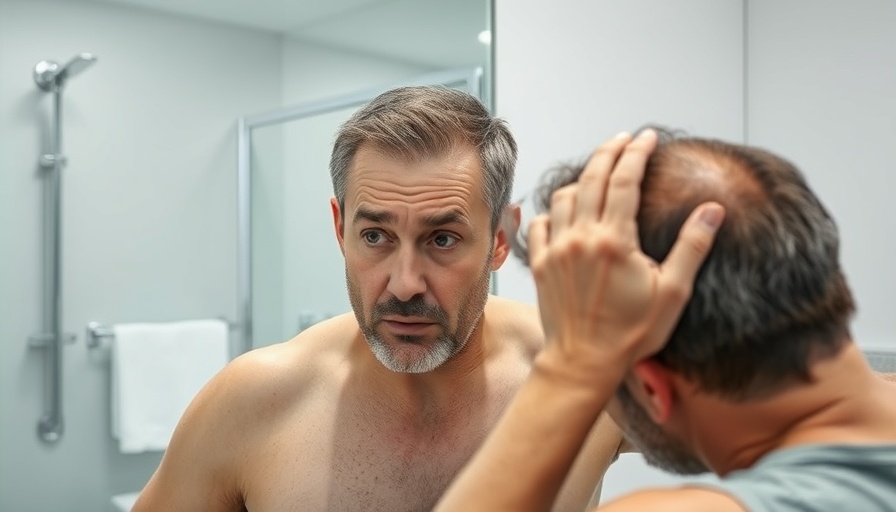
Understanding Male Hair Loss: What You Should Know
For many men, hair loss is an often dreaded specter that looms, especially as they age. However, the conversation around male hair loss isn't just about hair—it encompasses broader health implications, emotional well-being, and proactive steps that can be taken. Dermatologists and hair surgeons are stepping forward to provide insights, offering not just hope, but evidence-based solutions.
Why Hair Loss Happens: The Science Behind It
Male Pattern Baldness, or androgenetic alopecia, is primarily caused by hormonal changes and genetics. As men age, they may experience increased levels of dihydrotestosterone (DHT), a derivative of testosterone that contributes to hair follicle shrinkage. Understanding this biological process is essential not just for grasping the 'why' of hair loss but for considering the possible interventions available.
Early Intervention: Why Waiting Can Be Detrimental
Experts emphasize the importance of not waiting until hair loss becomes pronounced. Early intervention is crucial. In fact, the sooner treatment begins, the better the chances of preserving existing hair and potentially regrowing some follicles.
Medications like minoxidil and finasteride, while not miracle cures, can effectively slow the progression of hair loss when used consistently. They work best when started early, potentially preventing men from reaching a stage where they feel they have no other options.
Alternative Treatments: Beyond Medication
While medication can play a significant role, exploring alternative treatments can provide additional benefits. Platelet-rich plasma (PRP) therapy, for instance, has gained popularity for its promise to stimulate hair growth. This involves drawing a small amount of the patient's own blood, processing it to enrich for platelets, and re-injecting it into areas of hair thinning. The body’s natural healing process can then potentially stimulate hair follicles.
Moreover, lifestyle changes can also contribute positively to hair health. A well-balanced diet rich in vitamins and lean proteins can nourish hair follicles from within. Additionally, minimizing stress, maintaining adequate hydration, and getting regular exercise not only promote overall health but can also have positive effects on hair health.
Emotional Impacts of Hair Loss: A Human Perspective
Beyond the physical implications, hair loss can have profound emotional consequences. For many, it can significantly affect self-esteem and body image. Understanding these psychological impacts is key not only for the individuals but also for their families and friends. Acknowledging these feelings—such as embarrassment or anxiety—can help in seeking support from friends, family, or professionals. Support groups or therapy sessions specialized for those experiencing hair loss can be beneficial.
The Path Forward: Empowering Choices & Decisions
Ultimately, the journey through hair loss does not have to be a solitary one. Open discussions about these experiences can foster connections, allowing men to share their stories, seek advice, and learn from one another. Men should feel empowered to make informed decisions about their hair health, understanding all available avenues—whether it’s through traditional medications, surgical options, or holistic approaches.
So, what’s stopping you? If you or someone you know is navigating the complexities of hair loss, don’t wait until it’s too late. Consult with a healthcare professional or a specialist who can guide you through the options and empower you to take charge of your hair health!
 Rij toevoegen
Rij toevoegen






 Rij toevoegen
Rij toevoegen



Write A Comment